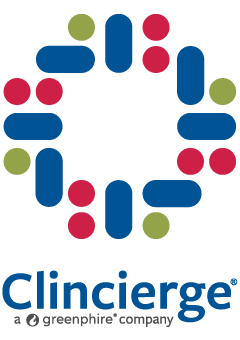November is the Month to Raise Awareness
The month of November is Alzheimer’s Awareness Month and National Family Caregivers Month (NFCM). Alzheimer’s disease is a progressive and often debilitating form of dementia, and patients need an increased level of care as the disease progresses. Those who provide care for patients with Alzheimer’s disease often require their own support system, as the physical and emotional stress can be difficult to process alone.
Important Alzheimer's Facts
Here are a few facts about those affected by Alzheimer’s disease.
- More than 6M people in the United States are currently battling various degrees of this illness
- Almost 2/3 of those diagnosed are women
- Black Americans are twice as likely to have some form of dementia than their white counterparts
- Hispanic Americans are 1.5 times more likely to be diagnosed with dementia than white individuals
- By 2050, an estimated 12.7M Americans will be diagnosed with Alzheimer’s disease
The Burden on Family Caregivers and Resources
The statistics below illustrate just how great the stress of caregiving can be:
- 83% of the help provided to older Americans comes from family members, friends, and unpaid caregivers
- Of these, almost half of these caregivers support adults struggling with Alzheimer’s disease and other dementias
- 1 in 3 caregivers is over the age of 65, and many have their own health conditions and limitations
- 2/3 of these caregivers are women, with 1/3 of these caregivers being daughters of the patient
Caring for someone with Alzheimer’s disease is often very difficult emotionally. This progressive disease affects the brain and causes cognitive issues like severe memory loss. It is imperative that the caregiver stays healthy and has the support they need throughout this time.
Clincierge Conversations: Personal Connections to Alzheimer's Disease
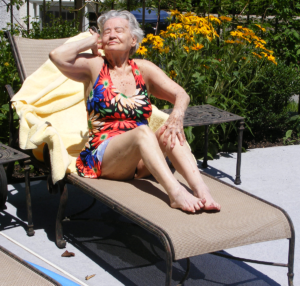 My grandmother’s name was Mildred, and her Alzheimer’s disease was confirmed late in life - she was already in her late 80’s. I suspect it was present for much longer, but Granddad took such good care of her and managed around her forgetfulness.
My grandmother’s name was Mildred, and her Alzheimer’s disease was confirmed late in life - she was already in her late 80’s. I suspect it was present for much longer, but Granddad took such good care of her and managed around her forgetfulness.
By the early 2000s, however, it had progressed to the point where it affected her ability to maintain hygiene and prepare meals. Granddad was no longer comfortable taking her out of their apartment. In 2003, we asked Granddad (90 y/o) if he and Mildred (89 y/o) would move into our home. He eagerly accepted. It took some time to get Mildred back on track, but we succeeded. We had to figure out how to create a new routine that she would follow to keep her healthy.
We lost Granddad in summer 2004 at age 92. When we needed to leave the house to go to work, Mildred would be alone. She would spend much of the day just watching TV. She gave the cats milk – constantly. Sun, exercise, and being with extended family was her purpose. We were fortunate we could provide care and comfort, and she was pretty functional and never lost her sense of humor.
We lost her on December 26, 2009, at the age of 96, when other parts of her body began to fail. I was grateful to have returned the care and kindness she gave me over the years. I am very proud of our employees for participating in the Walk to End Alzheimer’s event this year, benefitting research that is beneficial to finding treatments for their members and our patients.
Scott Gray
CEO
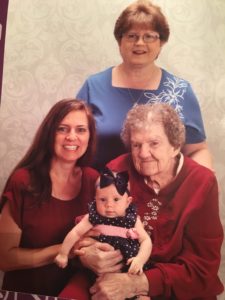
I’m excited to be a part of this walk for a cause that means so very much to me. Alzheimer’s has been a part of my life since I was very young. My great-grandmother was diagnosed before I was old enough to know what Alzheimer’s was. I remember how hard it was for my mom, who spent every day of her childhood and teen years with her. When her disease progressed, she moved into a care facility, and I remember visiting her often. She didn’t know who we were, but I knew how precious that time was for my mom. She passed when I was 11 years old.
Many years later, her daughter, my great aunt, showed many of the same forgetful signs we had first experienced with my great-grandmother. She was diagnosed with dementia, and the disease progressed rapidly, taking her life about ten years ago. That was very hard for me because we were very close. I spent many summer Sundays and weekdays at her house. I miss those days, but I’m so thankful for the memories.
Only a few years ago, my grandmother was also diagnosed with Alzheimer’s. It didn’t surprise us because we could see the signs of memory loss for many years leading up to the diagnosis. She continues her battle to this day, with some good days where she still knows who we are. I was blessed that she was well enough to hold my youngest baby before her disease progressed further. My grandmother moved into a care facility, and when COVID-19 hit, it made it impossible and dangerous to see her. For most of my life, I have been especially close with my grandmother. It’s been very difficult for me to see her the way she is now. I take comfort in all the time we had together, and our family enjoyed celebrating her 90th birthday on October 23, 2021.
Stephanie Stewart
Study Start-Up Lead
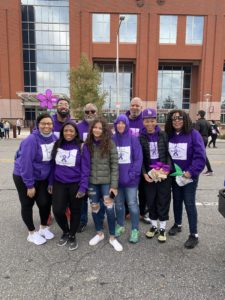 I lost my grandmother, Marion Warren, to dementia/Alzheimer’s in December of 2017. Some of my fondest memories include going to my grandparent’s house, where my grandmother would make dinner. Afterward, we’d watch Channel 6 Action News and Jeopardy.
I lost my grandmother, Marion Warren, to dementia/Alzheimer’s in December of 2017. Some of my fondest memories include going to my grandparent’s house, where my grandmother would make dinner. Afterward, we’d watch Channel 6 Action News and Jeopardy.
A few years before her passing, my grandmother started sundowning, which means that she became more confused as the day progressed from the late afternoon to night. Eventually, she reached the point where she didn’t know who I was. It was so difficult to watch her decline.
Those who love someone with Alzheimer’s know that you “lose” them before they are no longer physically here. I miss her a lot but am glad she is no longer suffering from such a debilitating disease. The support, care, and research that the Alzheimer’s Association provides are so needed, and I’m so excited to participate in the walk this November.
Jasmine Warren
Human Resources Specialist
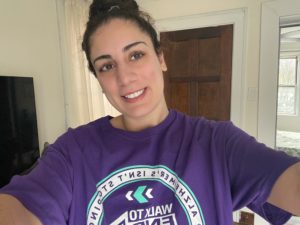 Alzheimer’s disease has affected several members of my family over the years. My mother’s father, Antonios, suffered from Alzheimer’s disease since I was a little girl. He and my grandmother, Yvonne, lived in Tartus, Syria, so I didn’t get to see them often except during the summers when we would visit. My grandmother discovered she had developed the early stages of dementia when my grandfather’s Alzheimer’s worsened, but she held it together as much as she could to support him during the last few years of his life.
Alzheimer’s disease has affected several members of my family over the years. My mother’s father, Antonios, suffered from Alzheimer’s disease since I was a little girl. He and my grandmother, Yvonne, lived in Tartus, Syria, so I didn’t get to see them often except during the summers when we would visit. My grandmother discovered she had developed the early stages of dementia when my grandfather’s Alzheimer’s worsened, but she held it together as much as she could to support him during the last few years of his life.
My grandfather passed away in March of 2014, and my grandmother went slowly after, in May of 2014. She had been quietly suffering for the last year or so before and decided it was time to be with him shortly after his passing.
My father’s father also had Alzheimer’s disease, and he passed away three years after his diagnosis. Alzheimer’s disease has affected my family in many ways and has also impacted my fiancé’s family, as his grandmother has had dementia for the last few years. It means a lot to me that this company is involved in such a special cause, and I am proud to have joined this team.
Caroline Markabawi
Associate Global Study Manager
Join us in the Fight to End Alzheimer's Disease
This November, take some time to learn about Alzheimer’s disease, as well as support options for patients and those caring for Alzheimer’s patients. Clincierge’s patient concierge coordinators are trained in supporting both clinical trial patients and those who care for them. They offer a kind heart and listening ear to the patient initially and the caregiver throughout the progression of the disease, as Alzheimer’s often renders the patient unable to communicate. These coordinators remain with the patient throughout the clinical trial process, often becoming an invaluable resource to the family.
In 2021, to honor Alzheimer’s Awareness Month, Clincierge employees participated in the Walk to End Alzheimer’s in Philadelphia. Our Team raised $9,850 towards Alzheimer’s research and had a blast doing it!


